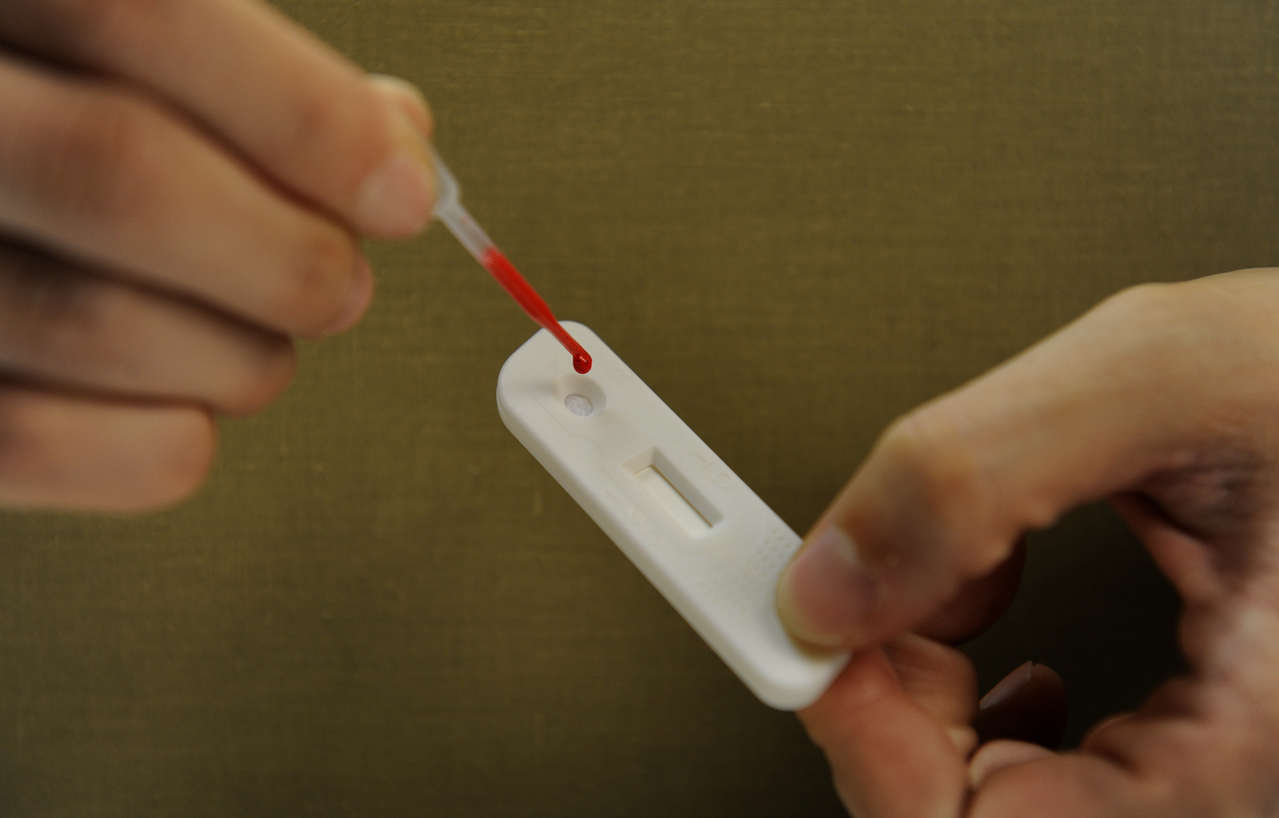Singapore surpasses UN goals of HIV treatment and suppression but still lags behind in diagnosis
Sign up now: Get ST's newsletters delivered to your inbox

Singapore still falls short of the third goal, which is to have 90 per cent of all people living with HIV know their status.
PHOTO: ST FILE
Timothy Goh
Follow topic:
SINGAPORE - About 91 per cent of those diagnosed with the human immunodeficiency virus (HIV) here are receiving sustained antiretroviral therapy for it, and 91 per cent of this group have suppressed the virus.
This exceeds two of the United Nations' three "90-90-90" goals, the Health Ministry's director of communicable diseases Vernon Lee said on Saturday (Dec 5).
But Singapore still falls short of the third goal, which is to have 90 per cent of all people living with HIV know their status.
Speaking at the 12th Singapore Aids Conference, held virtually this year, Associate Professor Lee said that only 80 per cent of HIV-positive people here have been diagnosed.
This number was calculated using data from the national HIV registry database and modelled using a tool that the European Centre for Disease Prevention and Control uses.
Prof Lee said that Singapore's 80 per cent statistic for this goal is around the global average, while the Republic has generally surpassed other regions with its achievements for the other two targets.
He also noted that Singapore has progressed in terms of the percentage of people who have HIV that have been diagnosed, which has increased every year, up from 66 per cent in 2014.
"The progress we have made in terms of getting people tested and diagnosed with HIV has improved across the years, but this is something that we need to continue to push, because we want people to get diagnosed so that they can move towards treatment and viral suppression," he said.
The percentage for the three groups was calculated based on data from 2018, as it takes several years for it to be processed.
So it is not yet clear if Singapore will meet the UN's target for the goals for 2020.
But Prof Roy Chan, president of Action for Aids Singapore, said hitting the UN's targets is not as important as seeing an improvement over time.
"The important thing for us to understand is - are we doing better? Ninety per cent is (just) the first target... We cannot just say we have two more years to go. We can do much better than this; I think as a small country, we can hit 95 per cent," he said.
Prof Chan, who is also a senior consultant at the National Skin Centre and head of its Sexually Transmitted Infection Control Programme, said that the 20 per cent who remain undiagnosed is a "very big figure".
"The (other goals) have always been the easier ones to attain because we are a small country, and once people are on treatment and have access to affordable care, they usually remain on treatment," he said.
He added that over the years, Singapore has been trying to encourage people who feel they are at risk of HIV to get tested, through various means such as anonymous test sites and mobile testing vans in order to reduce the barriers to testing.
"But the barrier is not just physical, it's also the fear of being diagnosed... We need to try to reduce the stigmatisation of people living with HIV, and also to correct the misunderstanding that treatment is expensive," he said.
Noting that about half of those here who are diagnosed usually come forward only when they are in the late stages of the disease, Prof Chan said more needs to be done to understand what is holding them back.
He added that self-testing kits could help people get access to HIV tests without needing to go to a clinic or a test site, which could help reduce fear.
There is also a need to help people overcome the fears of what may come with a diagnosis, such as potentially losing their jobs or being criminalised or stigmatised, he said.
Student Nurafiqah Azman, 24, who was born with HIV, shared a similar sentiment.
Speaking at the conference, she listed a number of changes that could help improve the lives of those who have the disease here, including "having (general practitioners) who have more knowledge about HIV... schools having sensitivity training for their staff about HIV, as many people are misinformed about HIV and have outdated thinking about it, (and) having mental health support for people living with HIV".
Prof Chan said: "We have some ways to go, and it's the job of everybody... to work together to try and get this done."

